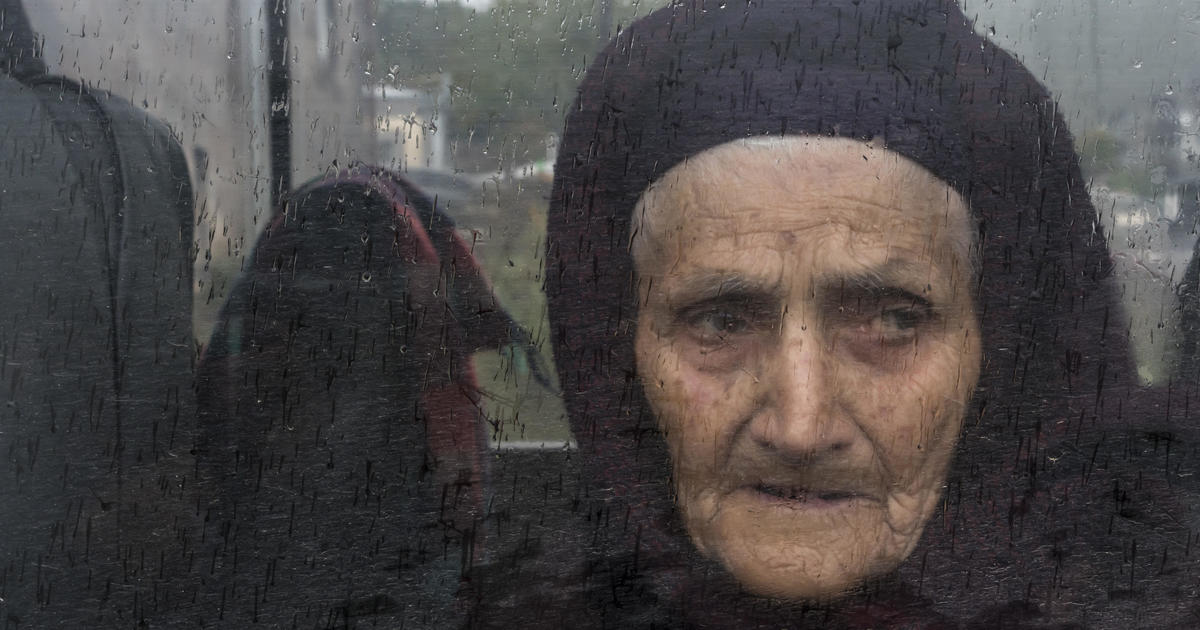News
Trump calls on Congress to pass COVID relief after calling off negotiations
Victims’ families react to Trump saying not to be afraid of COVID
Valerie Bertinelli on spending “last moments” with Eddie Van Halen
Nobel Prize in Chemistry awarded to two women
Hurricane Delta hits Mexico, toppling trees and knocking out power
Pence agrees to plexiglass barrier for debate after early objections
U.S. unveils restrictions on H-1B foreign work visas
Thousands flee homes as deaths mount in Armenia-Azerbaijan conflict
Putin notes Biden’s “anti-Russian” remarks, gloats over missile test
2020 Elections
CBS News coverage of the 2020 elections
Battleground Tracker: Latest polls, state of the race and more
5 things to know about CBS News’ 2020 Battleground Tracker
CBS News coverage of voting rights issues
How do I vote in my state in the 2020 election?
Battleground Tracker: Trump and Biden even in Ohio, as Biden leads in PA
With more mail-in ballots, officials urge patience on election night
Americans and the right to vote: Why it’s not easy for everyone
Why some mail-in ballots are rejected and how to make sure your vote counts
What happens if the president doesn’t accept the election results?
Election Day could turn into “Election Week” with rise in mail ballots
Shows
Live
LIVE
More
Search
Live
Watch CBSN Live
Fighting between Armenia and Azerbaijan
Fighting between Armenia and Azerbaijan
03:26
Moscow — Fighting between Armenian and Azerbaijani military forces over the breakaway region of Nagorno-Karabakh continued Wednesday for the 11th day, with no sign of a ceasefire. More than 300 people have reportedly been killed since the long-simmering dispute erupted in violence on September 27.
The two nations have disputed ownership of the mountainous enclave since becoming independent with the breakup of the former Soviet Union. Nagorno-Karabakh is internationally recognized as part of Azerbaijan, but it has been run autonomously by and is primarily populated by ethnic Armenians.
Hundreds join pro-Armenia protest in Los Angeles
An official from the regional administration said Wednesday that the fighting had already driven half of Nagorno-Karabakh’s civilian population out of their homes.
Vartanush Avakyan, 92, waits on a bus to ride to Yerevan, Armenia, after leaving her village of Gandzasar due to fighting in the Nagorno-Karabakh region, October 6, 2020 in Goris, Armenia.
Brendan Hoffman/Getty
“According to our preliminary estimates, some 50% of Karabakh’s population and 90% of women and children — or some 70,000-75,000 people — have been displaced,” the Nagorno-Karabakh administration’s rights ombudsman Artak Beglaryan, told the AFP news agency.
The fighting in the Caucasus has ended 25 years of relative peace, delivered by a ceasefire brokered to end a deadly war between the former Soviet republics over Nagorno-Karabakh in the 1990s.
On Tuesday, Azerbaijani officials claimed that Armenian forces had targeted an oil pipeline with cluster munitions, which most nations have banned the use of. The Armenian Ministry of Defense promptly dismissed the accusation, insisting Armenian forces had not targeted any oil or gas infrastructure.
The breakaway region of Nagorno-Karabakh, recognized internationally as part of Azerbaijan, is seen in red.
Getty/iStockphoto
There have been claims from both sides that the other is indiscriminately shelling civilian areas.
Earlier this week, Amnesty International issued a report corroborating information that cluster munitions had been used during the bombardment of Stepanakert, Nagorno-Karabakh’s main city, also known as Khankendi, by the Azerbaijani Armed Forces.
Amnesty called on both Armenia and Azerbaijan to become parties to the Convention on Cluster Munitions, which neither of the two have signed.
The president of neighboring Iran, Hassan Rouhani, warned Wednesday that the Azerbaijan-Armenia conflict could escalate into a regional war. Those fears have been voiced, too, by independent analysts who note, specifically, the lack of any meaningful intervention by the Trump administration in the U.S.
Russian President Vladimir Putin has described it as a tragedy. Putin, who has not picked sides in the conflict and who’s government has sold military hardware to both, said a peaceful resolution appeared “still a long way off, but in any case, we call for a ceasefire.”
Putin spoke Wednesday on the phone with his Azerbaijani counterpart Ilham Aliyev. He had previously spoken with Armenian Prime Minister Nikol Pashinyan four times since the hostilities broke out, according to the Kremlin.
Ilgar Ferzeliyev walks inside his burnt home that was hit by a rocket, during the military conflict over the breakaway region of Nagorno-Karabakh, in Barda, Azerbaijan October 7, 2020.
UMIT BEKTAS/REUTERS
The Russian government has also voiced concern over the involvement of fighters from Syria in the conflict. French President Emmanuel Macron said last week that evidence suggested Syrian jihadist fighters had traveled to the Caucasus through Turkey, which backs Azerbaijan in the fighting.
Armenia has accused Turkey of sending Syrian mercenaries to join Azerbaijani forces.
Armenian officials have said they are ready to engage with mediators of the so-called Minsk group — France, Russia and the U.S., which helped negotiate the last ceasefire over Nagorno-Karahabk — to work toward a new agreement.
Thus far Azerbaijan, with Turkey’s support, has refused to negotiate, demanding instead the withdrawal of all Armenian forces from the breakaway region, and from adjacent territory seized during the war in the 1990s.
Be in the know. Get the latest breaking news delivered straight to your inbox.
View CBS News In
CBS News App
Safari
